Cat Owners Beware! Eight Foods Cats Should Never Eat
Advertisement
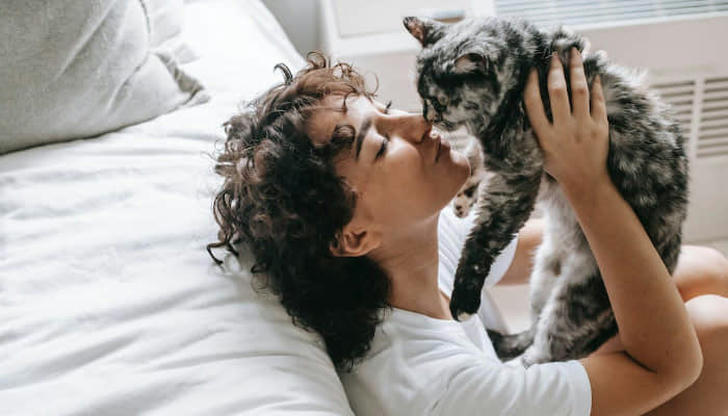
As a responsible cat owner, ensuring the well-being of your feline companion goes beyond showering them with affection. It involves a keen understanding of what foods should be strictly avoided to maintain their health.
Cats, with their unique dietary requirements, are sensitive to certain foods that might seem innocuous to us but can pose severe risks to their health.
In the following sections, we will delve into the intricacies of eight foods that should never find their way into your cat's bowl.
1. Chocolate
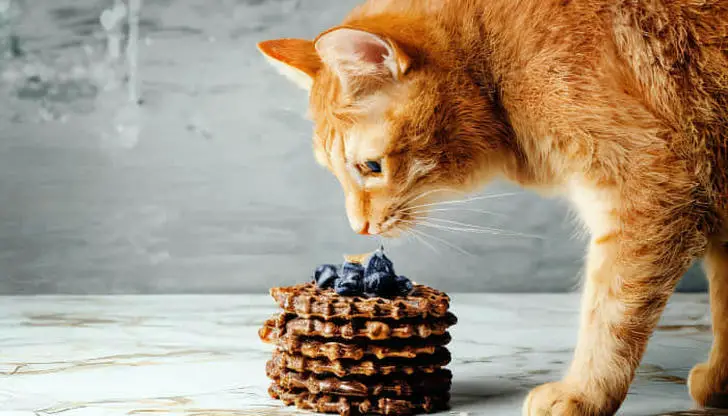
Chocolate contains substances called theobromine and caffeine, both of which belong to the methylxanthine class of chemicals. While humans can metabolize these compounds relatively quickly, cats lack the necessary enzymes to do so effectively. Theobromine, in particular, is toxic to cats and can accumulate to dangerous levels in their system. Ingesting chocolate can lead to symptoms ranging from restlessness and increased heart rate to more severe issues like tremors, seizures, and, in extreme cases, fatal outcomes. Even small amounts of chocolate should be strictly avoided in a cat's diet to prevent the risk of theobromine poisoning, ensuring their health and well-being.
2. Onions and Garlic
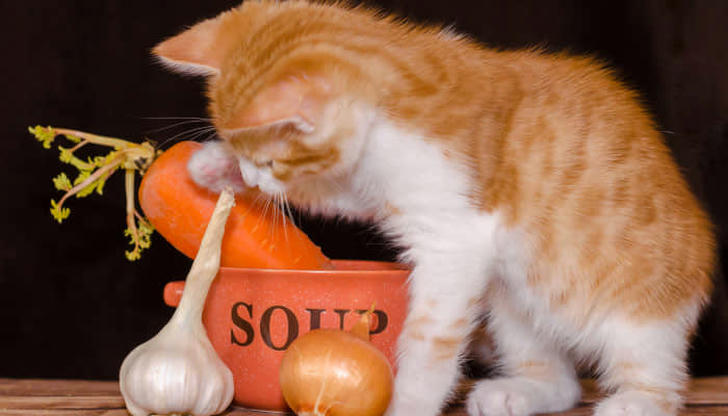
Onions and garlic contain compounds called thiosulphates, which are toxic to cats. It can cause oxidative damage to red blood cells, resulting in a condition known as Heinz body anemia. Cats lack certain enzymes necessary to digest these compounds, making their consumption particularly dangerous. Ingesting even small amounts of onions or garlic, whether raw, cooked, or powdered, can lead to symptoms such as lethargy, weakness, pale gums, and, in severe cases, organ damage. Prolonged exposure may result in life-threatening anemia. Due to the potential for severe health consequences, it's crucial to keep all forms of onions and garlic away from a cat's diet.
3. Caffeine
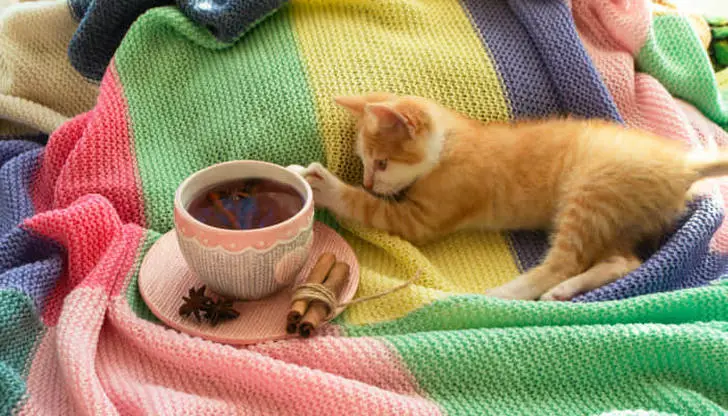
Caffeine, commonly found in coffee, tea, energy drinks, and some medications, is a stimulant that affects the central nervous system. Cats, being more sensitive to caffeine than humans, lack the necessary enzymes to metabolize it efficiently. Ingesting caffeine can lead to symptoms such as restlessness, increased heart rate, tremors, and potentially fatal outcomes like seizures. Additionally, caffeine can cause an increase in blood pressure, posing a risk to a cat's cardiovascular health. Given these adverse effects, it is crucial to keep all caffeinated products away from cats to ensure their well-being and prevent any potential emergencies.
4. Citrus Fruits
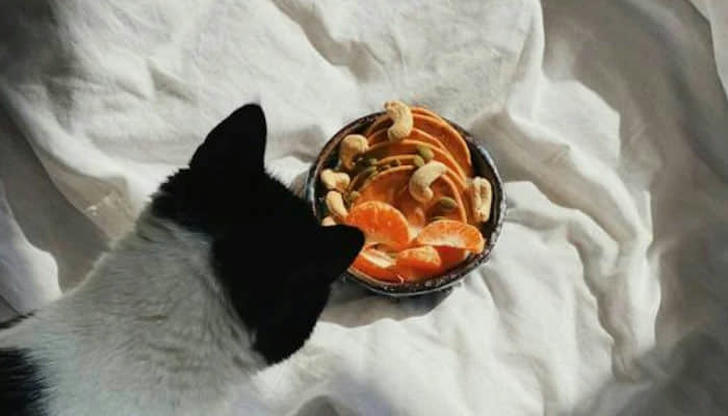
Citrus fruits, including oranges, lemons, and grapefruits, contain compounds like citric acid and essential oils that can be toxic to cats. These substances can cause gastrointestinal irritation, leading to symptoms such as vomiting, diarrhea, and abdominal discomfort. Moreover, cats are generally averse to strong citrus smells, making the ingestion of these fruits less likely. While a small amount might not result in severe consequences, it's best to avoid offering citrus fruits to cats altogether to prevent any potential digestive issues or discomfort.
5. Grapes and Raisins
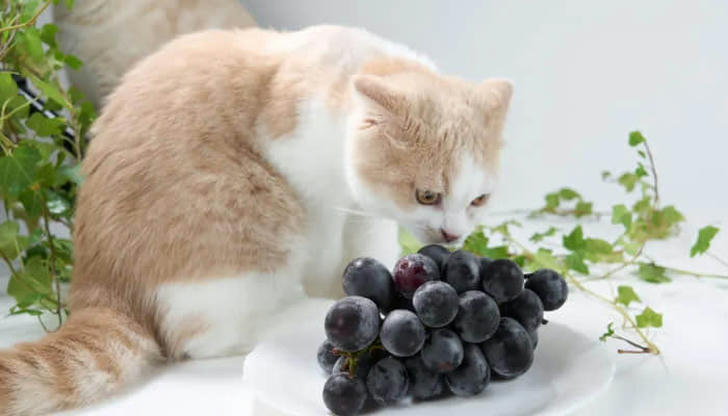
Grapes and raisins are known to be toxic to cats, although the exact substance responsible for the toxicity is not yet identified. Ingesting even small amounts of grapes or raisins can lead to severe complications in cats, such as kidney failure. The toxic effects can manifest quickly, causing symptoms like vomiting, lethargy, and a decreased appetite. The reason behind this toxicity remains unclear, but it's evident that these fruits pose a significant threat to feline health. To ensure the well-being of your cat, it's essential to keep grapes and raisins out of their reach and avoid incorporating them into their diet. If accidental ingestion occurs, immediate veterinary attention is crucial to mitigate potential harm.
6. Milk
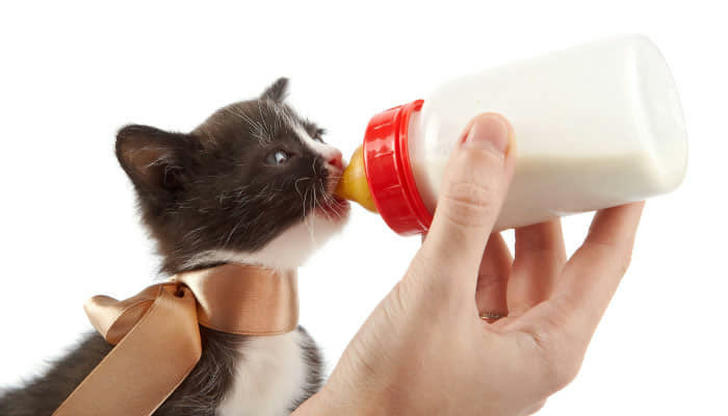
Contrary to the popular image of cats loving milk, many adult cats are lactose intolerant. Lactose is a sugar found in milk, and some cats lack the necessary enzyme, lactase, to properly digest it. When lactose-intolerant cats consume milk or dairy products, it can lead to digestive upset, including diarrhea and stomach discomfort. Feeding your cat milk might seem like a classic treat, but it's essential to recognize that it's not an ideal or necessary part of their diet. Providing fresh water is the best way to keep your cat well-hydrated without the risk of digestive issues associated with dairy consumption.
7. Bones
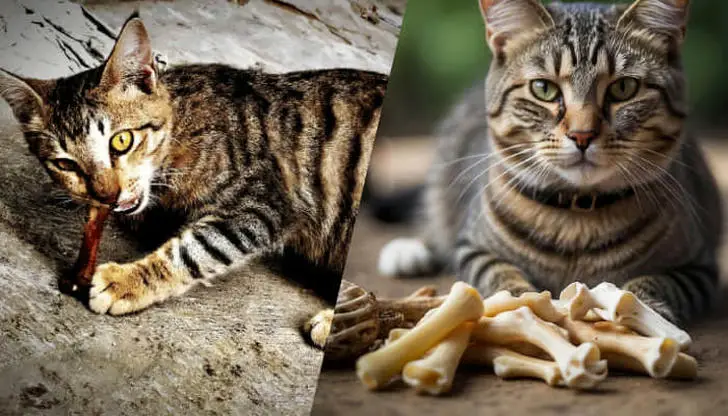
Feeding cats bones, especially cooked ones, can pose several risks to their health. Cooked bones are more brittle and can splinter easily, posing a choking hazard and causing internal injuries to a cat's digestive tract. Additionally, bones can break into sharp fragments, leading to potential damage to the mouth, throat, or stomach. Raw bones also carry the risk of bacterial contamination, such as salmonella or E. coli, which can be harmful to both cats and their owners. It's essential to avoid giving cats bones from poultry, fish, or any other source, as the potential dangers outweigh any perceived benefits. Instead, opt for safe and appropriate cat treats or toys designed to promote dental health.
8. Fat Trimmings and Raw Meat
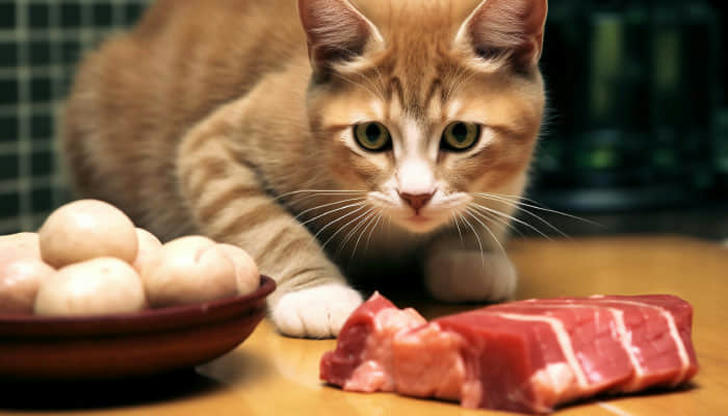
Feeding cats fat trimmings or raw meat comes with several health risks that cat owners should be aware of. Fat trimmings, especially those from cooked meat, can be challenging for cats to digest and may lead to digestive upset, including vomiting and diarrhea. Moreover, excessive fat consumption can contribute to obesity and other health issues. Raw meat, on the other hand, poses the risk of bacterial contamination, such as salmonella or E. coli, which can cause severe gastrointestinal problems in cats. Furthermore, a diet solely based on raw meat may lack essential nutrients that are crucial for a cat's overall health.
Understanding what your cat can and cannot eat is crucial for their well-being. Cats are curious creatures, and it's our responsibility as pet owners to create a safe environment for them. By being aware of the foods that can be harmful, you're taking a proactive step in ensuring your cat's health and happiness. Always consult with your veterinarian if you're unsure about what's safe for your feline friend.



